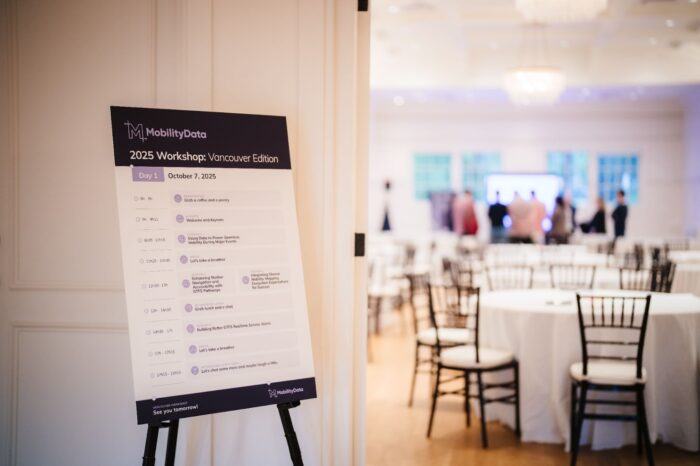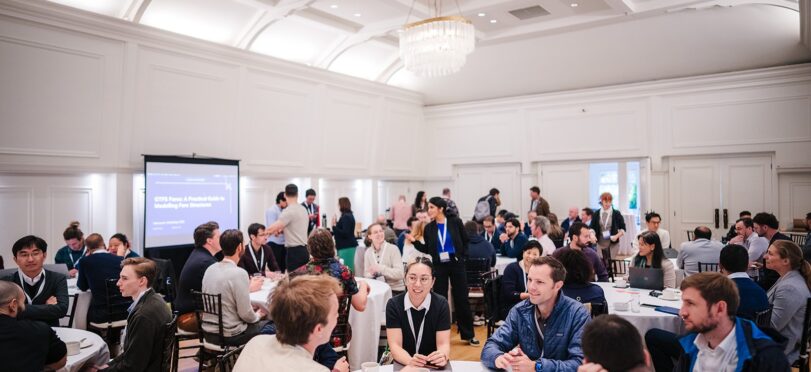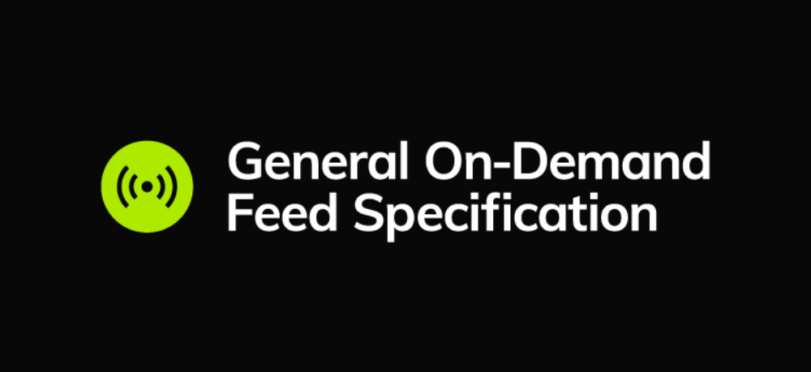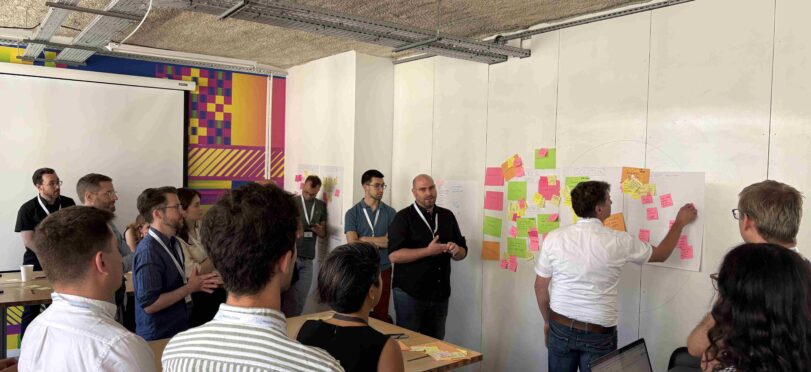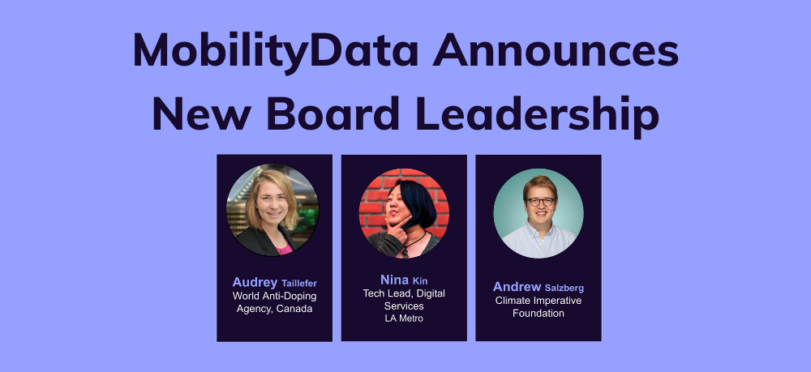5 Key Takeaways from MobilityData’s 2025 Vancouver Workshop
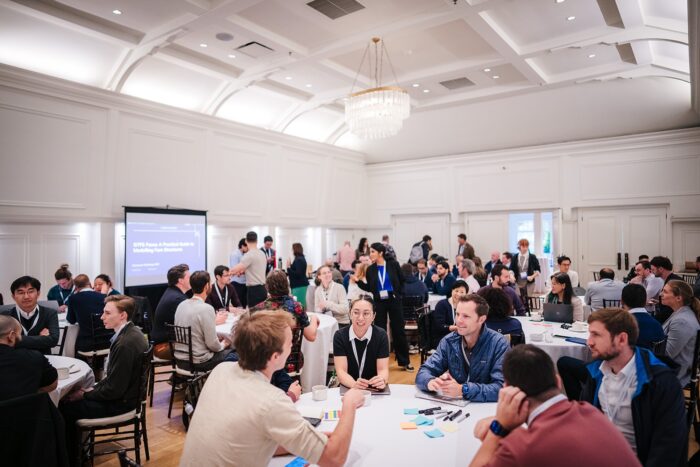
How can data make transit faster, smarter, and more inclusive?
This was the question that brought together over 70 leaders in mobility in Vancouver. CEOs, engineers, planners, and analysts came together over two packed days not just to discuss real-world mobility challenges, but roll up their sleeves together to find solutions from streamlining service alerts to planning for major global events like the Olympics or the FIFA World Cup.
For those who couldn’t join us in Vancouver, here are five key takeaways you missed!
1. Major Events Require Major Planning…and Data!
Discussions around major events, including the FIFA World Cup, the Olympics, and Taylor Swift concerts, made one thing clear: planning for major events is not just about moving people, it’s about making data actionable and adaptable for millions of visitors.
These large-scale gatherings require agencies and applications to innovate and remain adaptable to changing conditions. In the workshop’s opening session, we heard from organizations such as Translink, MBTA, LA Metro, MARTA, Transit, and movmi on strategies for managing service disruptions, adding new routes on short notice, communicating with riders effectively, and how shared mobility can be a key tool to managing the demand on transit when hosting big events.
In fact, over the years, agencies from Paris, London, and Moscow have shown first-hand how micromobility, car-sharing, and effective wayfinding can complement transit networks and prevent congestion during major events.
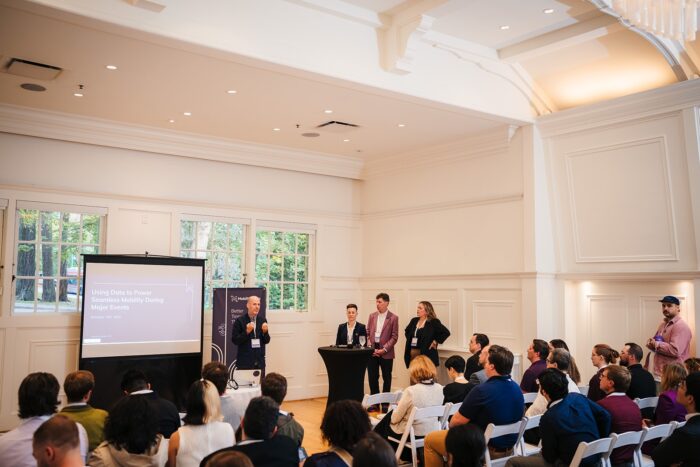
A few key takeaways:
- Share GTFS data early so third-party apps and technology platforms can provide consistent, reliable information.
- Build flexible systems to handle last-minute changes, including additional services or crowding updates.
- Expand beyond routes and schedules to include pathways, multilingual content, and crowding predictions.
2. Integration Strengthens Mobility
Building a truly connected transportation system means integrating all modes – buses, bikes, scooters, carsharing, and more – into a seamless experience for users. At the workshop, we heard from both CDTA and TransLink’s RideLink pilot project, each showcasing different strategies for unifying mobility services under a single brand or platform. Their approaches demonstrated how integration not only improves convenience but also encourages sustainable travel behavior.
Over 30 participants representing a wide range of stakeholders joined a dynamic, collaborative session focused on what’s needed to support truly multimodal cities. Each table explored the priorities of riders, transit agencies/operators, and technology providers, identifying pain points and opportunities to better align services.
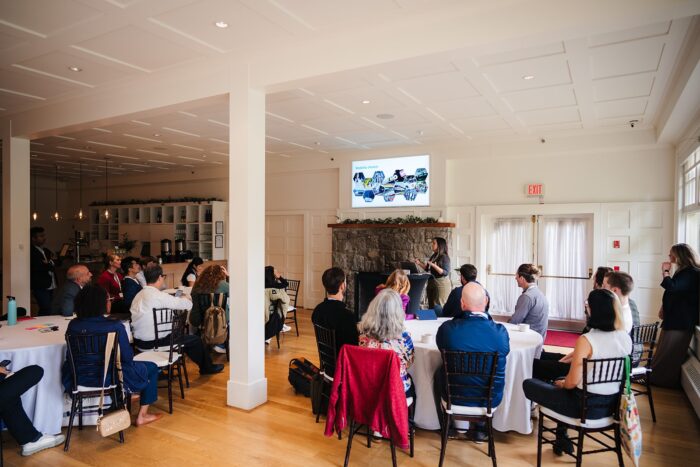
Whether it’s electric carsharing, bikes, scooters, or buses, presenting multiple mobility options, alongside consistent access and clear, real-time information, empowers users to choose the best mode for their needs on any given day.
Key takeaway: Real progress in mobility comes from moving beyond single-mode thinking. Integration strengthens the entire mobility ecosystem and creates a more connected, user-friendly experience for everyone.
3. Data Standards Are Making Real Progress
GTFS has come a long way, and the Vancouver Workshop showcased how new GTFS features like GTFS-Flex, Fares, and Pathways are helping agencies provide richer, more actionable information for riders. From trip modifications and fare structures to accessibility details and real time information, these features are expanding the information GTFS can show to riders that reflects real-world scenarios.
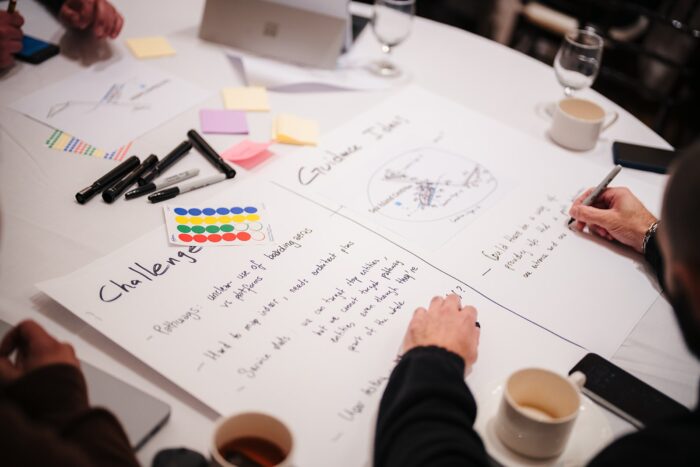
Not only did participants get hands on to create GTFS Pathways and Fares data, they also identified opportunities for continued growth of GTFS: better Realtime Service Alerts, clearer licensing information, and broader adoption of best practices, paired with stronger support and clearer guidance to simplify GTFS use and reduce complexity.
As a direct result of both workshops in Paris and now Vancouver, we will be using what we learned in these sessions to develop an improved Best Practices guide that will be published in 2026. It’s just one of the many ways workshop attendees are helping drive real, lasting change.
Key takeaway: GTFS isn’t just a tool for schedules, it has evolved into the foundation for smarter, safer, and more seamless mobility experiences.
4. Interoperability is Essential
GTFS alone can’t solve every mobility challenge. Its full potential is realized when it works seamlessly with other data standards. The Vancouver Workshop highlighted how other standards like TODS, GBFS, and GOFS can complement each other to include operational data, shared mobility information, and on-demand transportation options, so operators and users can provide and see all of the information they need.
Interoperability isn’t just a nice-to-have; it’s the foundation for a connected, adaptable, and user-friendly mobility ecosystem. By enabling data to flow smoothly across services, agencies from all corners of the world can respond to unpredictable conditions, scale operations efficiently, and provide travelers with a seamless experience from start to finish.
One of the key takeaways: The future of mobility depends on how well our standards work together, not how well they stand alone.
5. The Mobility Data Community is Growing and Thriving – Will You Help Lead the Way?
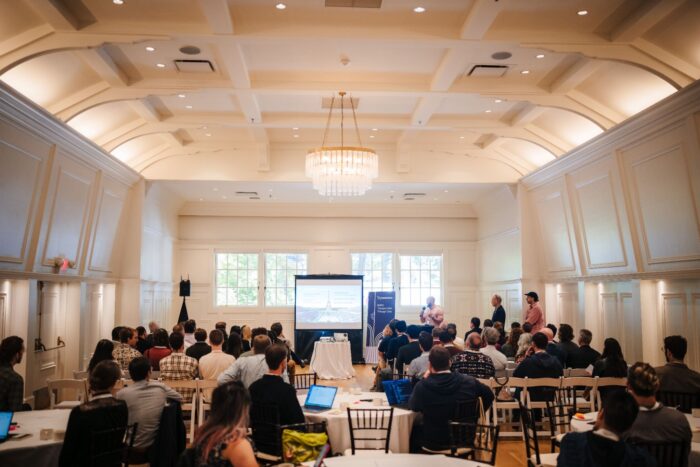
The Vancouver Workshop reinforced that the mobility data community is bigger, stronger, and more collaborative than ever. Together, participants shared insights, tackled tough challenges, and celebrated successes – from MBTA’s ARROW platform to Translink’s crowding predictions.
As one attendee noted:
“Sometimes it’s easy to think that you’re the only one working with GTFS data, so it’s good to be among our people.”
A key takeaway: The strength of the mobility data community comes from connecting, sharing, and learning together. We, at MobilityData, know the very important and unique role we play – of facilitating these connections and bringing public and private stakeholders together from across the world to align on common ground: global mobility data standards.
How can everyone play a role?
By becoming a MobilityData Member – which directly supports us as a global non-profit organization connecting the mobility data community to build, evolve, and promote open standards worldwide.
Our Members enable us to host these events, develop open-source free-to-use tools like the GTFS & GBFS validators and the Mobility Database, and steward an increasing number of open data standards to meet real-world needs. Membership not only sustains this work, it also gives organizations a direct role in shaping the future of mobility data.
If your organization is interested in supporting this mission and joining the community, reach out to yana@mobilitydata.org to learn more about the benefits of becoming a MobilityData Member.
The Work Continues
That’s a wrap on our 2025 Workshop Series! Between Paris and Vancouver, we brought together more than 135 participants from 17 countries for four days of knowledge-sharing, connection-building, and advancing one shared mission: better transportation through data.
The Vancouver Workshop proved once again that when the right mix of people and organizations from both the public and private sector come together, practical solutions emerge. The momentum we have built this year will carry us into 2026, where the conversations will grow even bigger.
Our next stop? Montreal.
Mark your calendars for September 22–23, 2026 for the International Mobility Data Summit. The Summit is where the global mobility data community gathers, and if you work in this space, you won’t want to miss it.
